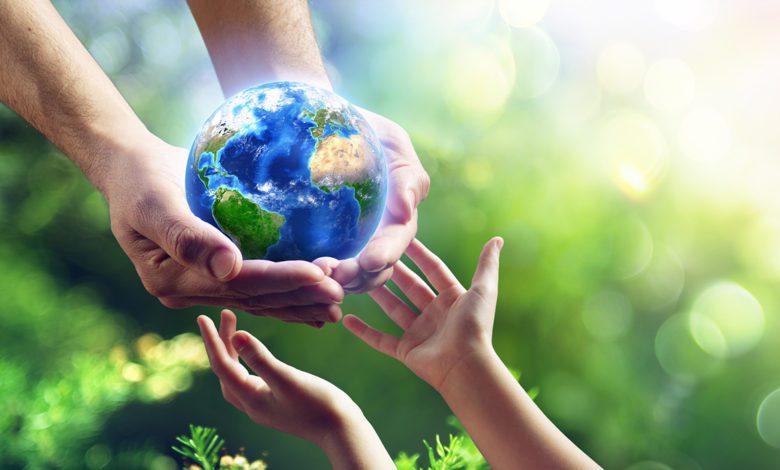
Much has been written about the thin silver linings surrounding the ghastly cloud of coronavirus that now engulfs our planet, our economies, our communities and friends. Staggering reductions in air pollution visible from space show us a glimpse of a future run on cleaner energy, but distorted through the perverse lenses of economic upheaval and human suffering. A welcome drop in deaths from the seasonal flu and other contagions allows us to imagine a future where preventable diseases are held better in check. However, this is no cause for celebration, with COVID-19 exacting its rising death toll. Every material silver lining we observe is just that — something outweighed by the awfulness of the circumstances giving rise to it.
But there exists a second class of silver lining to the crisis we are experiencing: the wisdom and foresight we could glean from this moment, and the lasting good that it could do our future selves and generations. These silver linings are not promised to us. We have to earn them through our political and civil discourse, through the leaders we empower, and through our commitment to building an even stronger and more resilient society than the one which entered 2020 largely unaware of an already existing threat.
A large part of why COVID-19 has dealt us such a crippling blow is not only its deadliness once contracted, but its relatively long incubation period of two to 14 days. Given our tendency not to react until we are feeling ill, this delay exploits a critical vulnerability. But now imagine a disease with an incubation period of a month, or even a year. How terrifying would that be? Climate change, the existential threat which was talked about the most before COVID-19, and will not be going anywhere of its own accord afterwards, has an incubation period of decades and centuries. The damage we bake in today is, as with that of COVID-19, terribly costly. And reversing climate change will require pulling carbon out of the atmosphere, a task which the second law of thermodynamics would very much rather we not do. As the U.N. Intergovernmental Panel on Climate Change (IPCC) warns, just keeping global temperature increases to roughly 1.5 degrees Celsius will require cutting greenhouse gas emissions almost in half before 2030, with net-zero achieved by 2050.
These are climatologists from around the world, experts in their field, just as epidemiologists are experts in theirs. As hard as it is to do — due to our collective perception of climate change as slow, abstract, and distant — we must view this response as an opportunity to renew a felt sense of urgency, because now we have a case study of what happens when we fail to guard against existential risk. If we can imagine COVID-19 incubating for decades as opposed to days, we begin to intuit the misguidedness of inaction.
We recognize that this focus may seem misdirected at a time when our attention is so clearly demanded by the here and now. What good does it do to think about a second crisis when we are embroiled in a first? But in fact this line of thinking does not trivialize the grief of families dealing with the death of loved ones, nor the pain of workers who lost their jobs in the devastated economy. Instead, it calls on us to honor what has been lost, and emerge stronger and wiser because of it.
For now, we must and should contend with the virus with all of our strength. The threat it poses is immediate and deadly. But in moments that allow for reflection and introspection, we should think hard about our collective vulnerability to the big problems which scientists continue to warn us about, and also about a better world and the opportunity we have to build it. Smogless cities. Reversing the advance of vector-borne diseases brought on by our new climate. That world, with prosperity decoupled from the negative externalities of the fuels that power it, is ours to make. Existential threats to humanity are not going away any time soon, but — if it is any silver lining — neither is human resilience.
Daniel Palken is an IEEE-USA Congressional Fellow for 2020-21. He is currently completing his Ph.D. in physics at the University of Colorado Boulder, and is a Conservative Outreach Fellow for Citizens’ Climate Lobby. Reach him at daniel.palken@citizensclimate.org.
Jacob Miller is a Conservative Outreach Fellow for Citizens’ Climate Lobby and a Research Assistant for Kansas State University’s Sociology Department. He will be starting a interdisciplinary, NSF-funded PhD program there in the fall. Visit his website or email him at tree11@ksu.edu.






